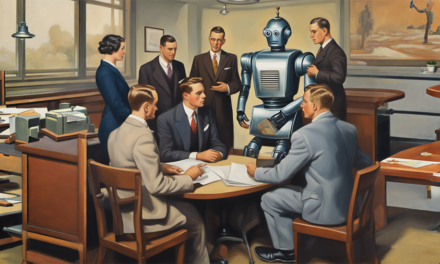In the new report “Generative Artificial Intelligence: Towards a New Civilization?” by Arthur D. Little’s (ADL) Blue Shift Institute, the burgeoning realm of Generative Artificial Intelligence (GenAI) is thoroughly explored.
This comprehensive study, backed by insights from 150 global experts, propels our understanding of GenAI’s vast capabilities and its transformative potential across numerous sectors.
GenAI, while still in its infancy, is quickly demonstrating its ability to meet or surpass human performance in a variety of tasks. From language comprehension and inference to text summarization, GenAI tools like ChatGPT are just the beginning of a much broader AI revolution. This technology is not limited to chatbots and text generation; its reach extends to fundamentally altering corporate intellectual tasks traditionally performed by humans.
The Corporate Transformation
As delineated in the report, all aspects of corporate intelligence across industries are expected to be significantly impacted by GenAI. This includes content generation, information search, pattern recognition, optimizing processes, and even creating original designs and media. Such extensive applications indicate that GenAI will shape how companies strategize, innovate, and compete in the market.
The ADL report goes beyond merely charting GenAI’s integration into various industries. It underscores the critical uncertainties around its development and scalability, particularly the move towards Artificial General Intelligence (AGI), which could surpass human abilities across a wide spectrum of tasks. Dr. Albert Meige, Global Director of Blue Shift at Arthur D. Little, highlights the need for an in-depth understanding of GenAI’s disruptive power, encapsulated in the report’s title, “Towards a New Civilization?”.
The Future Work Landscape
GenAI’s integration is set to redefine the workplace, demanding new skill sets and reevaluation of job functions. As businesses adapt to this technology, roles within organizations will evolve, focusing on managing and collaborating with AI systems. The automation of intellectual tasks will prompt a significant shift in workplace dynamics, emphasizing the need for strategic foresight and adaptability.
GenAI is not merely a technological leap; it’s a catalyst for fundamental changes in business and society. For businesses, understanding and preparing for these changes is crucial. This involves recognizing GenAI’s potential, being aware of associated risks, and fostering a workforce skilled in AI collaboration. As we stand on the brink of this new era, companies that effectively integrate GenAI are poised to lead their respective industries.
Generative Artificial Intelligence: Towards A New Civilization?, can be viewed and downloaded here.






